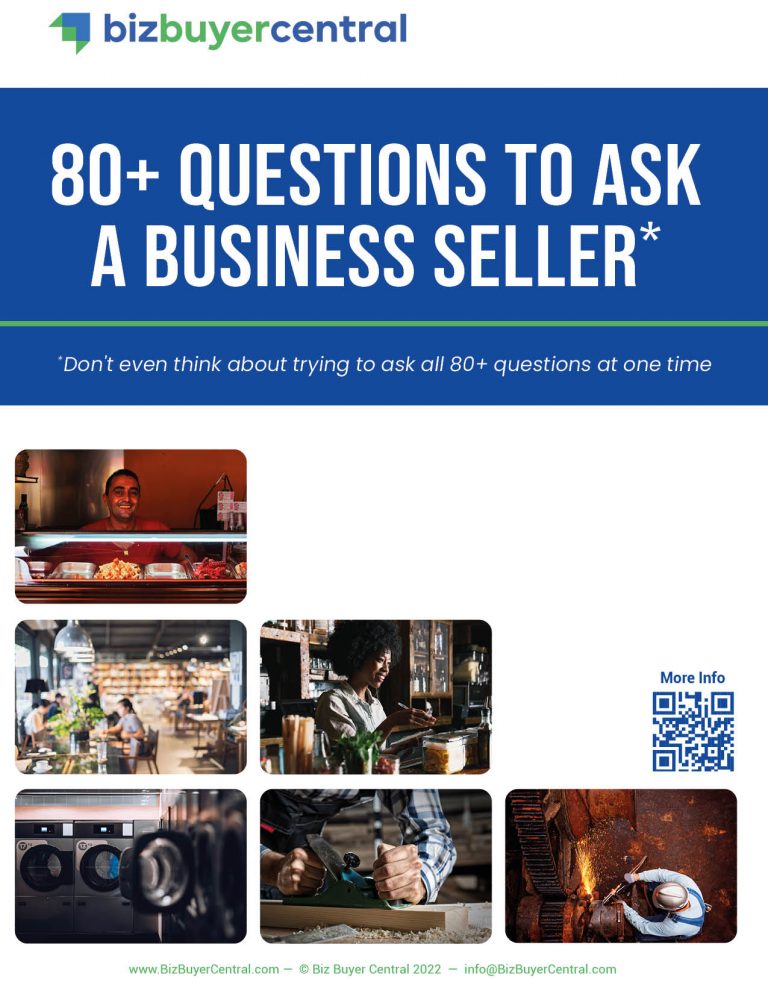A letter of intent (LOI) is a document that outlines the proposed terms and conditions of a business purchase. It is used as a starting point for negotiations between the business buyer and business seller and is not legally binding.
In other words, it is a non-binding agreement that serves as a guide for the business seller and buyer to negotiate the final agreement. So, it means something but it does not commit anyone to do anything.
If it does not make anyone do anything, then why do you use it?
What is in a Letter of Intent (LOI)
The LOI typically includes a bunch of information about how the business purchase will be structured. Here is a list of things typically covered in an LOI:
- Type of sale – Usually it will ist if this is an asset sale or a stock sale.
- Purchase Price – This will list the total purchase price and how it will be paid to the business seller.
- Structure of the Purchase – This could include what cash is changing hands and when, if there is a seller’s note, any working capital left in the business, and who keeps the accounts receivables.
- Assumptions of Liabilities – Does the buyer agree to take on any of the existing debts from the business
- Description of the Purchased Assets – This will broadly describe what assets are included in the sale and which are not.
- Financing – Any financing that the buyer will use to purchase the business.
- Due Diligence – How the due diligence will be structured, what is covered, and how long it will take.
- Indemnifications – Basically some lawyer talk about how no one is responsible to the other party for fees during the LOI
- Exclusivity – This says that will the LOI is in effect the seller will not try to sell the business to someone else
- Confidentiality – This says that while the LOI is in effect, both parties will not talk about the business purchase
Expert Tip – Most business brokers have a standard form they use to create a LOI. You can also find samples of an LOI online. Either way, make sure you are familiar with how they are structured.
The advantages of using a Letter of Intent (LOI)
One of the main advantages of using an LOI is that it allows the business buyer and seller to set some expectations and negotiate the terms of the deal before a formal agreement is reached. This can help to avoid misunderstandings and ensure that both parties are on the same page.
It also helps both parties to identify any potential issues or obstacles that may arise during the negotiation process. It is always better to identify potential problems in a deal before you get too far down the road.
Another advantage of an LOI is that it can be used to demonstrate that the buyer is serious about buying the business. This can be helpful in situations where the seller is considering multiple offers and the buyer wants to make sure they are the ones lined up to buy the business.
Additionally, it can be used as a tool to secure exclusivity, which prevents the seller from entering into any negotiations with other potential buyers during the due diligence period.
Expert Tip – Business Sellers sometimes set a deadline and ask for a LOI from multiple potential buyers. They then pick the best deal and enter an exclusivity period with that buyer.
Go Deeper on the Letter of Intent
People always seem to have a problem getting familiar with the documents involved in buying a business like an LOI. If this sounds like you, it may be a good idea to buy this book: Here’s The Deal: Everything You Wish a Lawyer Would Tell You About Buying a Small Business.
This is a very helpful book to help you with documents, contracts, and other legal issues that may come up when buying a business. It is worth the read.
Click the book image to learn more
What else do I need to know about a Letter of Intent?
The LOI is also a very useful tool for protecting the buyer’s interests. It can be used to include representations and warranties by the seller, which can provide the buyer with some protection against any future claims by the seller. Additionally, it can be used to include indemnification provisions, which require the seller to reimburse the buyer for any losses that the buyer may incur as a result of any breaches of representations and warranties.
However, it is always important to remember that an LOI is not a binding agreement, and either party can walk away from the deal at any time. This means that it is important to be cautious when drafting an LOI and to include language that makes it clear that the document is not binding. It is also important to note that some provisions such as confidentiality and exclusivity can be legally binding and enforceable, so it is important to be aware of the legal implications of these sections of the LOI.
In some cases, the LOI may include a non-binding term sheet, which is a document that outlines the main terms and conditions of the deal, such as the purchase price, financing arrangements, and contingencies. The term sheet is typically used as a starting point for negotiations and is not legally binding.
One of the key considerations when drafting an LOI is to ensure that the document is clear, concise and easy to understand. You don’t want it written in a style that only a lawyer or a Latin language expert could read.
It is important to avoid using legal jargon and to be specific about the terms and conditions of the deal. This can help to avoid any misunderstandings or confusion during the negotiation process.
Final thoughts on the Letter of Intent
An LOI is a useful tool when buying a business, as it serves as a framework for the buyer and seller to negotiate the final agreement. It allows both parties to clarify their expectations, identify potential issues and show the buyer’s commitment to the purchase.
However, it is important to remember that an LOI is not legally binding, and either party can walk away from the deal at any time for any reason. Additionally, it is important to be aware of the legal implications of certain issues like confidentiality and exclusivity, and to ensure that the document is clear, concise, and easy to understand.
Now go out there, find a business and change your life!









